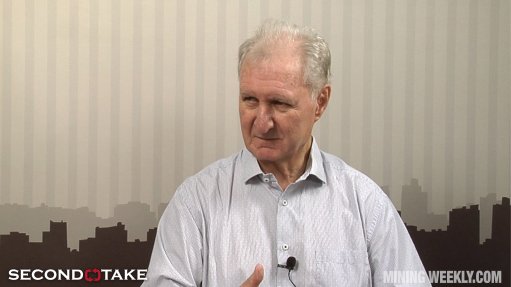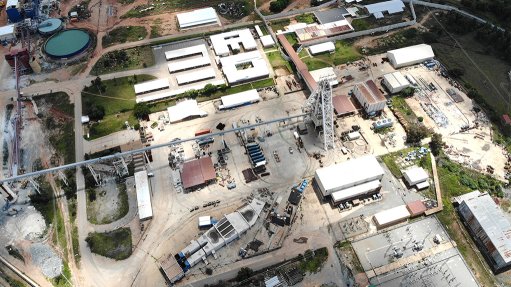The Labour Relations Act deeming provision – an update from a TES perspective
By Jeandie Leoné, Commercial Executive at Workforce Staffing
Section 198A of the Labour Relations Act (LRA), also known as “deeming provision”, has been a contentious issue since it came into effect in 2015, and even more so since the Constitutional Court judgement around the Act in 2018. There are so many different interpretations of the law that it can be difficult to understand how to apply it to specific situations. Using a Temporary Employment Services (TES) Provider can further complicate matters, which makes it critical to have the right TES partner on board.
The legal side
Section 198A(3) states that an employee performing a temporary service is the employee of the TES in terms of section 198 (2). A “temporary service” is defined as work by an employee for up to three months, or where an employee substitutes another employee who is temporarily absent. If the service performed is not temporary in nature, the employee is then deemed to be the employee of the client and the client is deemed to be the employer. Subject to the provisions of Section 198B, they are considered to be employed on an indefinite basis by the client. This is where unions claim that after three months, a temporary employee needs to be made a permanent employee of the client.
However, Section 198B also allows for fixed-term contracts and regulates the management thereof. A fixed-term contract either ends when a specific event occurs, when a specified project is completed, or on a fixed date which can be justified. Fixed-term contracts can be justified in many different scenarios.
Different interpretations
On the one hand, deeming provision may be interpreted that temporary employees become permanent employees after three months. On the other hand, the interpretation is that there is a dual employment relationship where both the TES and the client are deemed ‘joint’ employers.
However, in practice, the application of the LRA only means that, where the TES employee is deemed to be the employee of the client, for liability purposes the client and the TES can be held responsible. They are not deemed to be permanent employees of the client, only that the liability is shared and both the client and the TES can be held responsible for LRA contraventions such as bad labour practice and unfair dismissal. In terms of benefits, pay and applications for vacancies, a TES employee needs to be treated the same as a permanent employee, but they do not have to be afforded the same employment status.
A case law example
In the ongoing case of Assign Services (Pty) Ltd v National Union of Mineworkers and Others (CCT 194/17) [2018] ZACC 22, the interpretation dispute was finally decided. According to the outcome of the case, there is nothing preventing parties from continuing with the triangular relationship that exists between the TES, its client, and the employee. Deeming provision does not mean a transfer to a new employment relationship, but rather “a change in the statutory attribution of responsibility…” as per paragraph 75 of the judgment. It is not a requirement that employment relationships and statuses as such be changed, and the TES client merely attracts liability for purposes of the LRA, and only for purposes of the LRA.
In our experience
During 2019, Workforce’s Gauteng region alone had 23 referrals relating to “deeming provision”. The number of referrals in 2021 dropped to 13. In most instances, applicants sought permanent employment with clients because they had been assigned at a particular site for more than three months. In some instances, employees refused to enter into justified Fixed Term Contracts, hence not complying with Section 198B.
Not one of these deeming disputes was “lost”. There was not a single dispute that resulted in a client having to employ assignees permanently, or the client being held liable for the TES’s commercial duties. In addition, no disputes resulted in the client being held responsible financially.
Do TES employees need to be made permanent?
The short answer is no. In all of the deeming provision cases seen to date, there has not been a single precedent set where this is the case. As yet, there is no interpretation of the deeming provision that creates a permanent employee relationship.
Editorial Contacts
Kyle Webster
Evolution PR
Comments
Press Office
Announcements
What's On
Subscribe to improve your user experience...
Option 1 (equivalent of R125 a month):
Receive a weekly copy of Creamer Media's Engineering News & Mining Weekly magazine
(print copy for those in South Africa and e-magazine for those outside of South Africa)
Receive daily email newsletters
Access to full search results
Access archive of magazine back copies
Access to Projects in Progress
Access to ONE Research Report of your choice in PDF format
Option 2 (equivalent of R375 a month):
All benefits from Option 1
PLUS
Access to Creamer Media's Research Channel Africa for ALL Research Reports, in PDF format, on various industrial and mining sectors
including Electricity; Water; Energy Transition; Hydrogen; Roads, Rail and Ports; Coal; Gold; Platinum; Battery Metals; etc.
Already a subscriber?
Forgotten your password?
Receive weekly copy of Creamer Media's Engineering News & Mining Weekly magazine (print copy for those in South Africa and e-magazine for those outside of South Africa)
➕
Recieve daily email newsletters
➕
Access to full search results
➕
Access archive of magazine back copies
➕
Access to Projects in Progress
➕
Access to ONE Research Report of your choice in PDF format
RESEARCH CHANNEL AFRICA
R4500 (equivalent of R375 a month)
SUBSCRIBEAll benefits from Option 1
➕
Access to Creamer Media's Research Channel Africa for ALL Research Reports on various industrial and mining sectors, in PDF format, including on:
Electricity
➕
Water
➕
Energy Transition
➕
Hydrogen
➕
Roads, Rail and Ports
➕
Coal
➕
Gold
➕
Platinum
➕
Battery Metals
➕
etc.
Receive all benefits from Option 1 or Option 2 delivered to numerous people at your company
➕
Multiple User names and Passwords for simultaneous log-ins
➕
Intranet integration access to all in your organisation





















